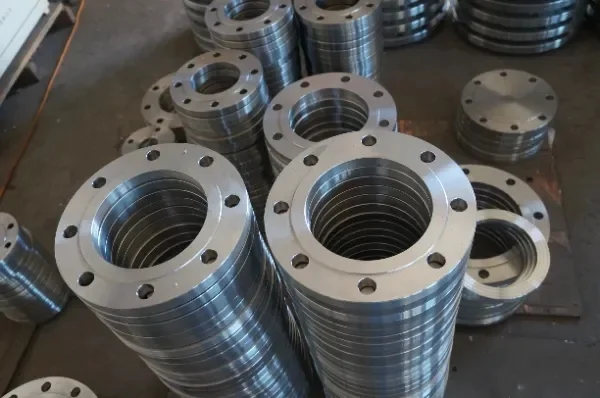Flange gasket seal connection leakage cause
A flange gasket is a commonly used sealing connection element, which is widely used in the connection of various pipelines, containers, and equipment. However, in actual use, we often encounter the problem of leakage of the flange gasket sealing connection. So, what are the reasons for the leakage of the flange gasket seal connection?

First of all, the quality problem of the flange gasket itself is one of the main causes of leakage. Flange gaskets are usually made of materials such as rubber, metal or plastic. If the quality of the material is not up to standard, the sealing performance of the gasket will be poor. For example, if the rubber gasket contains impurities or air bubbles, it will crack or deform during use, resulting in leakage. Likewise, flaws or corrosion in metal gaskets can affect their sealing performance.
Secondly, improper installation of flange gaskets is also a common cause of leakage. During installation, if the gasket is not properly placed between the flanges or not tightened according to the specified torque, it will cause deformation or breakage of the gasket, resulting in leakage. In addition, if the surface roughness of the flange is too large or there are defects such as dents and scratches, it will also affect the sealing performance of the gasket.
Third, changes in temperature and pressure can also cause leakage of the flange gasket seal connection. Under the condition of high temperature or high pressure, the material of the gasket is prone to expand, soften or burn, thus losing the sealing performance. In addition, changes in temperature and pressure will also cause expansion or contraction of the flange, which will cause insufficient tightening force of the gasket and cause leakage.
In addition, the nature of the medium will also affect the sealing performance of the flange gasket. Some special media, such as acid, alkali, solvent, etc., are corrosive or volatile, which will corrode or dissolve the material of the gasket, resulting in leakage. At the same time, parameters such as the viscosity and flow rate of the medium will also affect the sealing performance of the gasket, and a value that is too high or too low may cause leakage.
Finally, long-term use and aging are also one of the reasons for flange gasket leakage. As the use time increases, the material of the gasket will age, harden or become brittle, thus losing its original elasticity and sealing performance. In addition, long-term extrusion and deformation will also cause fatigue damage to the gasket, resulting in leakage.
In order to solve the problem of leakage of the flange gasket sealing connection, we can take the following measures. First of all, choose the appropriate material and type of flange gasket. The characteristics of the working environment and medium should be taken into consideration when selecting, so as to ensure that the flange gasket can meet the requirements of the actual working conditions. Second, install and adjust the flange gaskets correctly. Pay attention to the position and direction of the flange gasket during installation to ensure that it fits correctly on the flange surface. When adjusting, pay attention to the tightening strength of the flange bolts to avoid over-tightening or over-loosening. In addition, regularly check and maintain the state of the flange gasket, and replace the aged and damaged flange gasket in time to ensure the effectiveness of its sealing performance.
To sum up, there are many reasons for the leakage of the flange gasket seal connection, including gasket quality problems, improper installation, temperature and pressure changes, medium properties, and excessive use time. In order to solve these problems, we should choose a reliable gasket material, install the gasket correctly, control the temperature and pressure reasonably, choose a suitable gasket material, and regularly check and replace the aging gasket. Only in this way can it be ensured that the sealed connection of the flange gasket will not leak and ensure the normal operation of equipment and pipelines.
Carbon Steel Flange & Stainless Steel Flange
Advantages and scope of use of sliding flanges
Advantages of stainless steel flanges
What are the advantages of stainless steel pipe fittings?
304 stainless steel flange rust causes
Precautions for using stainless steel flanges
Flange installation precautions
Flange sealing principle and form






